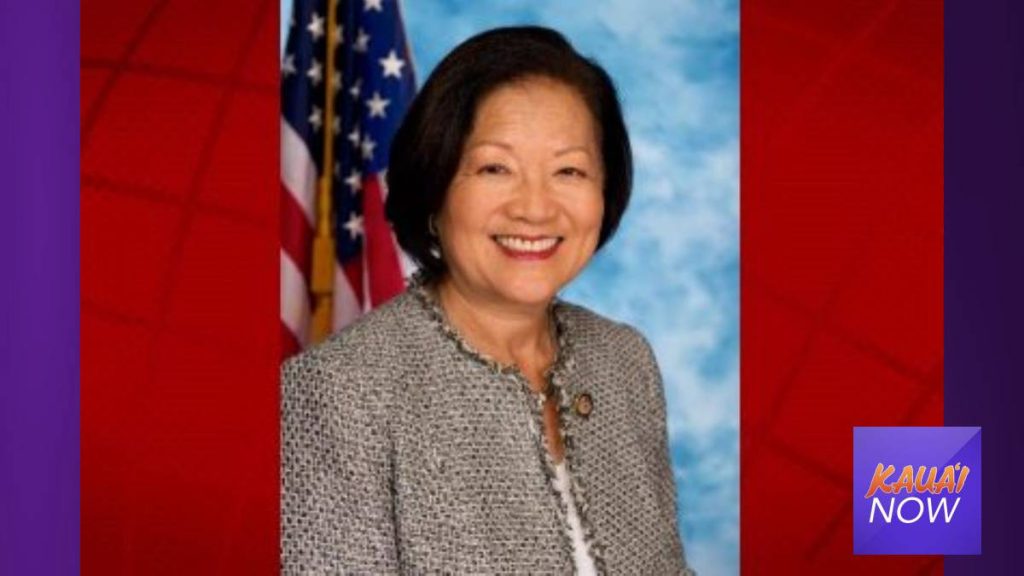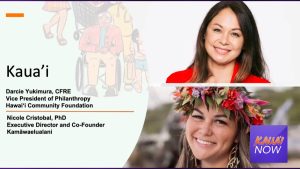State of Women in Hawai’i Conference Tackles Abortion Rights in Inaugural Meeting

Members from Kaua’i’s Committee on the Status of Women attended the inaugural State of Women in Hawai’i Conference to discuss women’s liberation through advocacy and awareness, youth mental health, and community cohesion in the wake of the U.S. Supreme Court overturning the landmark Roe V. Wade ruling last month.
The Hawai’i State Commission on the Status of Women, or HSCSW, met Friday, July 22 via Zoom to introduce U.S. Sen. Mazie Hirono, who spoke in defense of body autonomy while emphasizing electing the right people to the Legislature.
“I’m very familiar with the work of the Hawai’i State Commission on the Status of Women,” Hirono said, noting women’s historical fight for equality. “When I was in the State Legislature, I was one of the founders of the Bipartisan Women’s Caucus, which enabled us to work with outside advocacy groups like the Commission on the Status of Women to come up with bills that focused on what we could do to support women and families in our communities.”
HSCSW was created by executive order on May 15, 1964, to function as a central clearinghouse of resources, services, and advocacy for women and girls. The Commission was established to assist in legislative advocacy and implementation, to develop programs for women and girls, and to serve as an informational resource for Hawaii’s women and girls on a broad range of policies and issues.
Roe v. Wade has stood in America for nearly a half-century, Hirono, the keynote speaker, talked about her frustrations surrounding the crisis the Supreme Court created.
“Sometimes I hardly know where to start in terms of the sense of urgency that I have at this moment,” Hirono said. “A constitutional right that we women and those that can have babies thought we had for almost 50 years is suddenly gone.”
She noted that the court’s abortion overturn wasn’t exactly unexpected, “but at the same time when the actual reversal came about, it was a shock, and it is creating a lot of chaos.”
Hirono, within days of the Dobbs Decision, pulled together a high level rapid response at the federal level that included advocacy groups at the state level to create interagency communication along with a statewide coalition that now has more than 50 members to relay regional information up the ladder.
Hawai‘i was the first state in the nation to make abortion legal if it is performed by a licensed physician in an accredited hospital, performed before the fetus is viable outside the uterus, and on a woman who has been a resident for 90 days or more immediately prior to the abortion.
 While the topic of abortion was front and center, some Kaua’i women spoke of shaping an agenda for youth mental health and community cohesion in times of disparity.
While the topic of abortion was front and center, some Kaua’i women spoke of shaping an agenda for youth mental health and community cohesion in times of disparity.
“The strength of Kaua’i is in our community of cohesion,” said Darcie Yukimura, noting how island residents have come together during disaster. “We can go back to Hurricane Iniki, where the entire island was devastated. … We saw the same thing with the 2018 floods and then the COVID pandemic, and we hope to address women and youth issues in the same manner.”
Yukimura is the vice president of philanthropy at the Hawai’i Community Foundation, or HCF, which makes charitable investments where opportunities and needs exist. HCF also creates and manages grantmaking with funders to maximize the impact of grants and support large-scale initiatives such as advancing the nonprofit sector and providing post-secondary education in Hawai‘i.
Although the County of Kaua’i is the first municipality in the state to allocate funds towards youth mental health programs, one Kaua’i woman said that crisis comes in different forms.
“Crisis is not made to be invisible, but that is what is happening right now across our state,” said Nikki Cristobal, noting the statistics surrounding youth mental health. “Kaua’i ranks the highest for suicide rates in Hawai’i, which is above the national average.”
Cristobal, the executive director and co-founder of Kamāwaelualani, a grassroots organization dedicated to cultural perpetuation, added that when figuring the statistics, the average is about one suicide per 30 days on Kaua’i. However, that average is higher for youth aged 15-24, where one in 11 attempt suicide.
The Commission is a statewide feminist government agency that works toward equality for women and girls in the state by acting as a catalyst for positive change through advocacy, education, collaboration, and program development.
For executive director Khara Jabola-Carolus or more information about current projects and programs: 808-586-5757 or click here.



